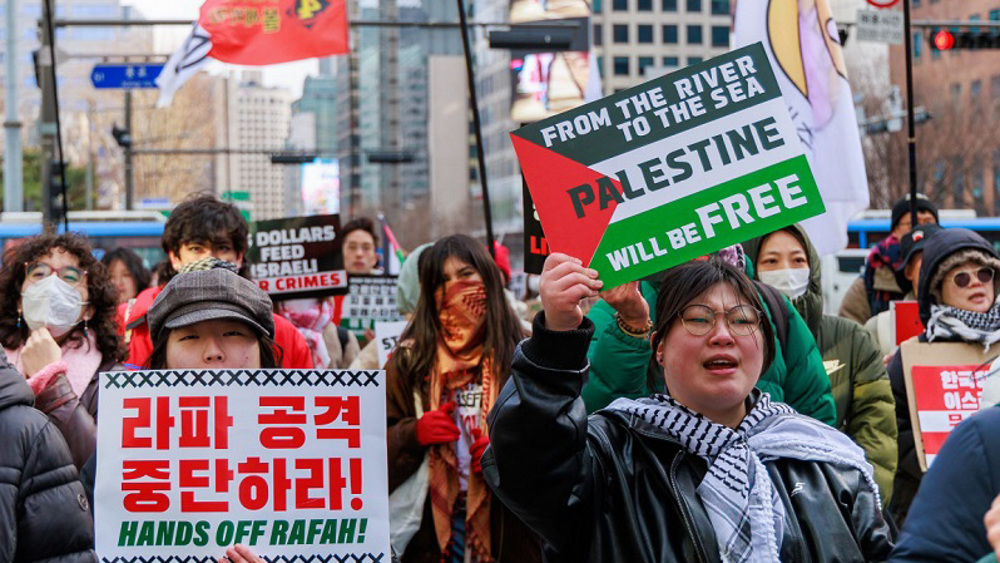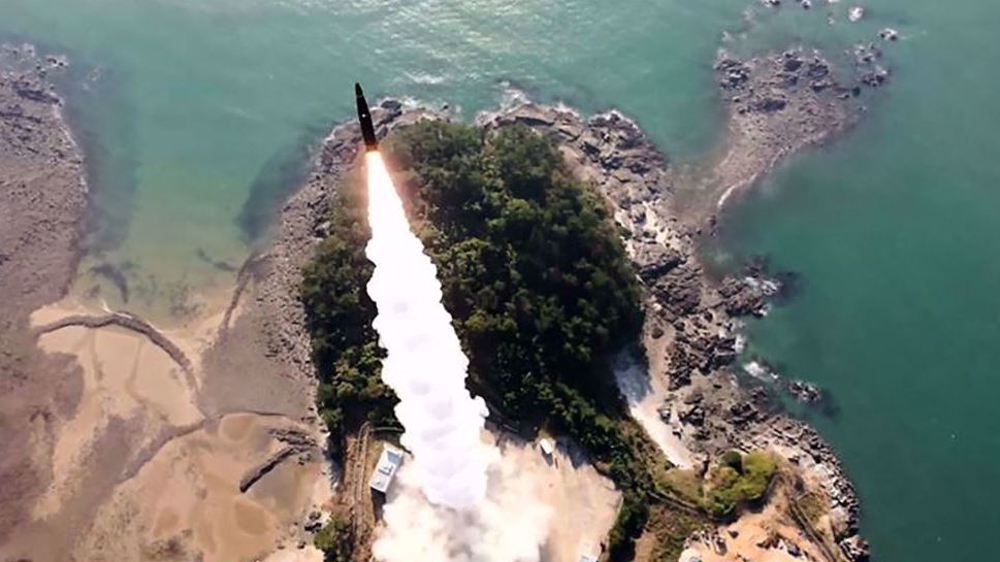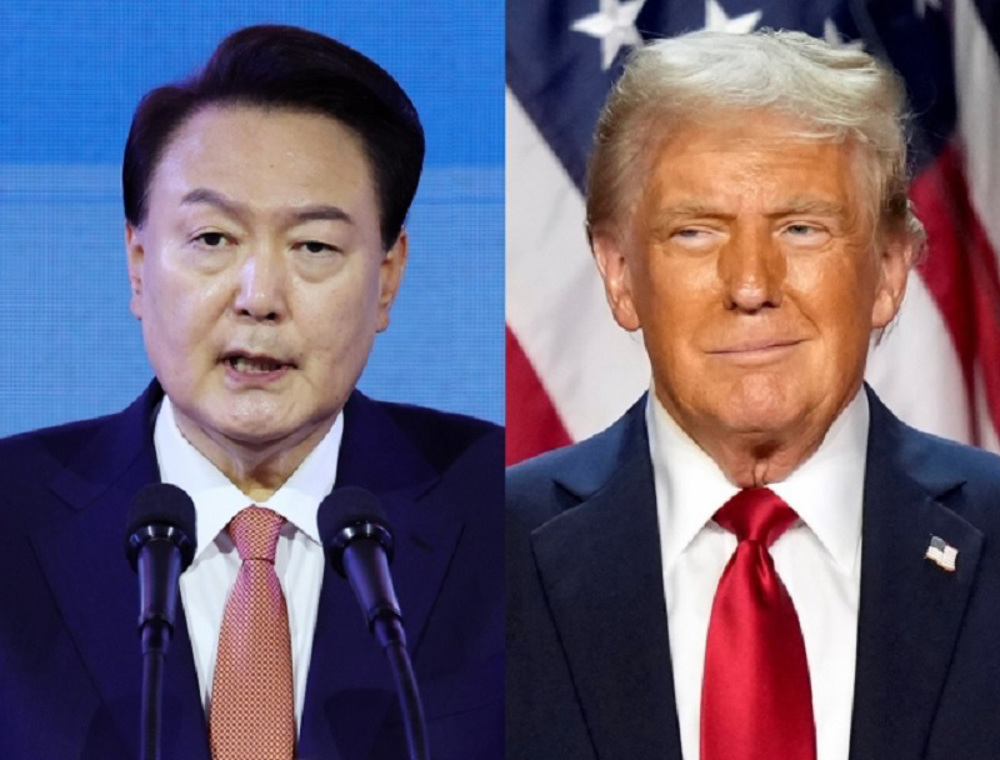US, South Korea agree to deploy THAAD missile system
Washington and Seoul say they have reached a formal agreement to deploy an advanced US missile system on the Korean Peninsula in a bid to counter alleged threats by Pyongyang.
“Based on these consultations, the (South) and the US made an alliance decision to deploy THAAD... as a defense measure to ensure the security of the (South) and its people,” the defense ministries of the two countries said in a joint statement on Friday.
The statement also said the Terminal High Altitude Area Defense (THAAD) will be stationed solely to counter the “nuclear and missile threats” posed by North Korea.
The two countries are in the final stages of selecting the site to install the THAAD unit with the US military stationed in the South, it added.
The ministry also noted that the anti-missile system will be operational by the end of next year.
THAAD has been designed to intercept ballistic missiles inside or just outside the atmosphere during their final phase of flight.
Tensions have been running high on the Korean Peninsula since Pyongyang carried out its fourth nuclear test in January.
In February, the North put an earth observation satellite into orbit. Following the launch, Seoul and Washington began talks on the THAAD deployment to the Korean Peninsula.
The US says the deployment of the missile system acts as a deterrent against North Korea’s ballistic missile program, but China says it would undermine stability on the restive peninsula.
Beijing views the planned move as an attempt to put their military facilities within the range of US radars.

THAAD deployment ‘damage to peace’
Beijing was quick to voice opposition to the deployment, saying Friday that the move would “seriously damage the strategic security interests of countries in the region, including China.”
“China strongly urges the US and South Korea to stop the THAAD anti-missile system deployment process,” its Foreign Ministry said in a statement, adding the system would not aid the “denuclearization of the Korean Peninsula.”
Pyongyang has been under UN sanctions over its nuclear tests and launching missiles considered by the US and South Korea as ballistic and aimed at delivering nuclear warheads.
The country describes its nuclear capabilities as a deterrent against hostile US policies. Thousands of US soldiers are stationed in South Korea and Japan.
The latest developments come days after the US imposed unilateral sanctions on North Korean leader Kim Jong-un for the first time over rights violation accusations.
On Thursday, North Korea warned that the new US sanctions targeting the country’s leader “crossed a red line” and amounted to “an open declaration of a war.”
Russia launches 'ICBM' for first time against Ukraine: Kiev
Scores killed as Takfiri terrorists target Shia Muslims in Pakistan
Pezeshkian to US, Europeans: You are killing women, children
VIDEO | COP29: another climate failure?
ICC issues arrest warrants for Netanyahu, Gallant for war crimes
Israeli strikes kill 88 Palestinians in northern Gaza
American voters plainly rejected complicity in Gaza genocide: Iran FM spox
ICC should issue more arrest warrants for Israeli authorities over Gaza genocide: UN expert
















 This makes it easy to access the Press TV website
This makes it easy to access the Press TV website